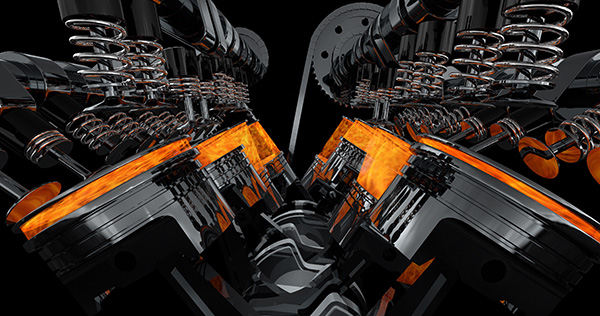
Have you ever been driving when suddenly you hear a knocking sound coming from your engine? It's a concerning noise that can leave any driver feeling worried and unsure of what to do next. What are the reasons behind engine knocking, what could be telling you about your vehicle's health, and what steps should you take to address this issue promptly?
What is Engine Knocking
Engine knocking, also known as detonation or spark knock, occurs when the air-fuel mixture in the combustion chamber ignites prematurely or unevenly. This premature ignition creates a knocking or pinging sound that is often described as metallic or rattling in nature. Several factors can contribute to engine knocking, including low-quality fuel, incorrect ignition timing, carbon buildup in the combustion chamber, and engine overheating.
What Your Engine Is Trying to Tell You
When your engine starts knocking, it signals that something isn't right under the hood. Ignoring this warning sign can damage your engine components, including piston rings, rod bearings, and cylinder walls. It's paramount to address engine knocking promptly to prevent costly repairs and ensure the longevity of your vehicle.
Steps to Take When You Hear Engine Knocking
Check Your Fuel Quality
Start by ensuring you're using the correct octane fuel recommended for your vehicle. Using lower-octane fuel than required can increase the likelihood of engine knocking, especially in high-performance engines.
Inspect Ignition Timing
Incorrect ignition timing can also contribute to engine knocking. If you suspect timing issues, consult your owner's manual or a qualified mechanic to adjust the timing accordingly.
Address Carbon Buildup
Over time, carbon deposits can accumulate in the combustion chamber, leading to hot spots and increased engine knocking. Consider using fuel additives or a professional carbon cleaning service to remove these deposits and restore engine performance.
Monitor Engine Temperature
Engine overheating can exacerbate engine knocking and cause severe damage to internal components. To prevent overheating, keep an eye on your engine temperature gauge and address any cooling system issues promptly.
Seek Professional Assistance
If you cannot diagnose or address the cause of the engine knocking on your own, don't hesitate to seek help from a certified mechanic. They have the expertise and diagnostic tools to identify the underlying issue and recommend appropriate repairs.
Common Questions You Might Have
Can I continue driving if my engine is knocking?
Continuing to drive with engine knocking is not advisable as it can cause further damage.
Will using higher-octane fuel eliminate engine knocking?
Higher-octane fuel can help reduce engine knocking, but other issues may also need addressing.
Is engine knocking a sign of imminent engine failure?
Engine knocking signals potential issues, but immediate failure isn't always imminent.
Experience engine trouble? Don't wait until it's too late. Contact Robbie's At Your Service today for expert diagnostics and repairs. Let us help you keep your engine running. Schedule your appointment now!